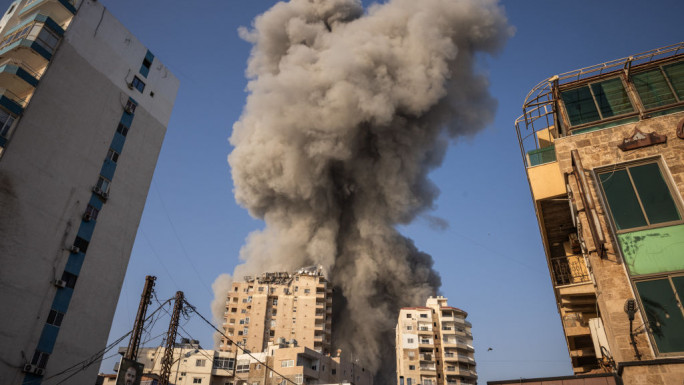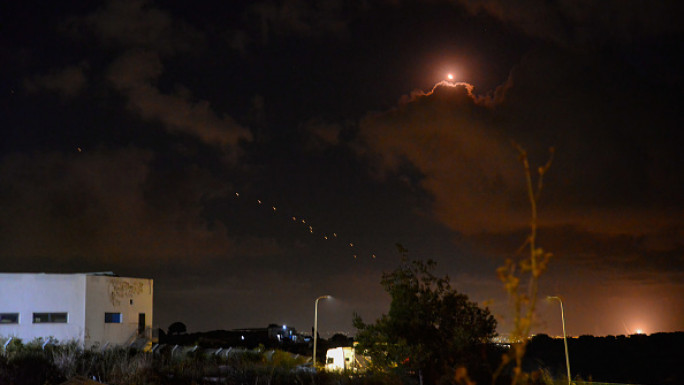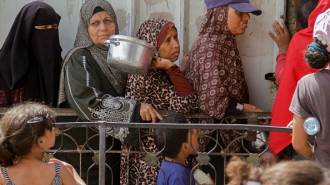Thousands infected, four dead as cholera spreads in Iraqi Kurdistan
Cholera has spread across Iraq, severely hitting Sulaymaniyah province in the northern Kurdistan region, where nearly five thousand cholera cases have been recorded and at least four people died of the pandemic, Kurdish officials told The New Arab.
Dr Hersh Salim, deputy head of Sulaimaniyah health directorate told TNA during a brief phone call on Tuesday that infection cases in the province have reached "nearly five thousand cases, and so far four to five people died due to the outbreak."
"All over the world, cholera spreads through polluted water and unhealthy food. We have both factors, especially unhealthy mobile food providers or food delivery services that use vegetables. That's why a large number of people are affected by the disease. Currently, we have enough medical supplies to contain the outbreak," Dr Salim added.
On Sunday the Iraqi federal health ministry announced 13 cholera infections across Iraq, one case in Kirkuk, two cases in Muthana, and 10 cases in Sulaymaniyah.
The Kurdistan Regional Government (KRG) minister of health, Dr Saman Hussain Barzangy, on Monday visited Sulaimaniyah and met with the health officials.
The KRG health ministry said on its official Facebook page that the minister delivered 10 tonnes of medical supplies to the governorate and imposed strict health measures, including banning serving vegetables in restaurants and increasing their observation of the factories of bottled drinking water.
Authorities in Sulaimaniyah also have destroyed several vegetable farms which were irrigated with the city's sewage and also sealed off several drinking wells after tests showed their water was not drinkable.
On the other hand, four cases of cholera have been recorded in Erbil, the capital city of the KRI.
A well-informed source told TNA on condition of anonymity that hundreds of cholera cases have been recorded among inmates in Sulaimaniyah Adult Reform Prison which is being run by the KRG ministry of labour and social affairs.
"One prisoner of Sulaimaniyah Adult Reformhas died of cholera, but we do not have a specified number of infections inside our prisons, because the disease has generally spread in the Kurdistan region. The KRG Ministry of Labour and Social Affairs conducted a tour of Sulaimaniyah Adult Reform Prison and met with health officials to contain the further spread of the disease. The source of the infection is the drinking water provided by the KRG," Aryan Ahmed, the spokesperson of the KRG ministry of labour and social affairs, told TNA.
The World Health Organization (WHO) on Monday announced in a statement that they "dispatched an urgent consignment of medicines and medical supplies to Sulaymaniyah governorate in the (KR-I) to support the Regional Ministry of Health in KR-I step up its response to the sudden cholera outbreak in the region."
The Kurdistan Region has been suffering from severe drought due to low seasonal rainfalls and restricting the flow of water from rivers sourced from neighbouring Iran and Turkey.
In general, water, air, and soil pollution across Iraq are an imminent threat to the country's environment. Sewage and industrial rubbish are often directly dumped into the major rivers without filtration, polluting the region's two main sources of drinking water which are the Dukan and Darbandikhan lakes.
"All our resources of drinking water are polluted. We have plans to establish infiltration units of sewage in the cities, but because of financial issues, the government might not be able to implement these projects for now," Abdul Razaq Khailani, spokesperson of the Kurdistan Region's Environment Board, told TNA on July 13.
According to WHO, cholera is a "waterborne bacterial infection that can spread quickly through a population. The disease is primarily contracted by consuming water or food contaminated with the cholera bacteria, Vibrio cholera. It causes uncontrollable diarrhoea that, if left untreated, can result in dehydration or death."





 Follow the Middle East's top stories in English at The New Arab on Google News
Follow the Middle East's top stories in English at The New Arab on Google News


